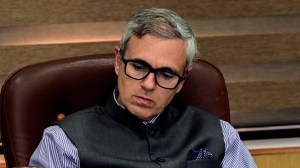The HR racket
The annual United Nations discussion on human rights and minorities appears to have degenerated into an open forum where anyone can air his...

The annual United Nations discussion on human rights and minorities appears to have degenerated into an open forum where anyone can air his views, no matter what their credibility rating. It is the only forum where people who can never hope to be heard in their own countries get a voice. It should not allow itself to be taken over by people who run riot on their home turf. Sinn Fein, the human face of the Irish Republican Army, is often castigated for raising funds specifically to buy arms, with which the less human face of the IRA goes about blasting kneecaps in Londonderry. By the same logic, people like ULFA chieftain Aurobindo Rajkhowa, who attended the session in Geneva this year, have no business talking about human rights. Not when the organisations they represent routinely stand accused of gross human rights violations. The ULFA, which has degenerated into a gang of common kidnappers and protection racketeers, ought to clean up its own act before bleating about the oppression it has to suffer at the hands of the State.
The Subcommission on the Prevention of Discrimination of Minorities may be about the least important forum of the UN, but its discussions are inevitably taken up by other wings of the body, and by the media. While, as Britain’s representative has pointed out, no nation, however big, ought to be above scrutiny, some scrutiny of the people present is surely warranted, because the human rights issue has become a powerful political weapon. It has always found wide application in international relations. Today, it is also a useful feature in national politics. In the last British election, Labour cashed in handsomely on Kashmir to grab the immigrant vote bank. The loud, righteous noises they made died out right after the polls. As such, minority aspirations and human rights are no longer fringe issues and ought to be handled more carefully. When people speak of excesses in Andhra Pradesh, Punjab and Assam, as the British representative did, there ought to be an insistence on perspective. The conditions under which the excesses’ were committed need to be appreciated. If they were in the nature of a low-intensity war, then excesses are inevitable. It is in the nature of war to bring out the worst in man.
As the recent outcry over excesses by Western peacekeeping forces in Africa showed, few nations emerge with their hands clean. In Andhra Pradesh, Assam and Punjab, Indian forces have operated under conditions that were at least as difficult, if not more so. Fighting the ULFA is not quite the same as mowing down unarmed students in Tiananmen Square. And to their credit, the Indian forces have been trying to improve their record. When UN fora discuss such issues, they should understand that they are dealing in mainstream politics, and try to keep the record straight. Irresponsible statements without perspective can only lead to political distortions, and they will rarely be to the advantage of the groups that the United Nations wants to benefit. In its own interest, the subcommission should go into the credibility of the statements that it hears and the interest groups that it hosts.







- 01
- 02
- 03
- 04
- 05
























